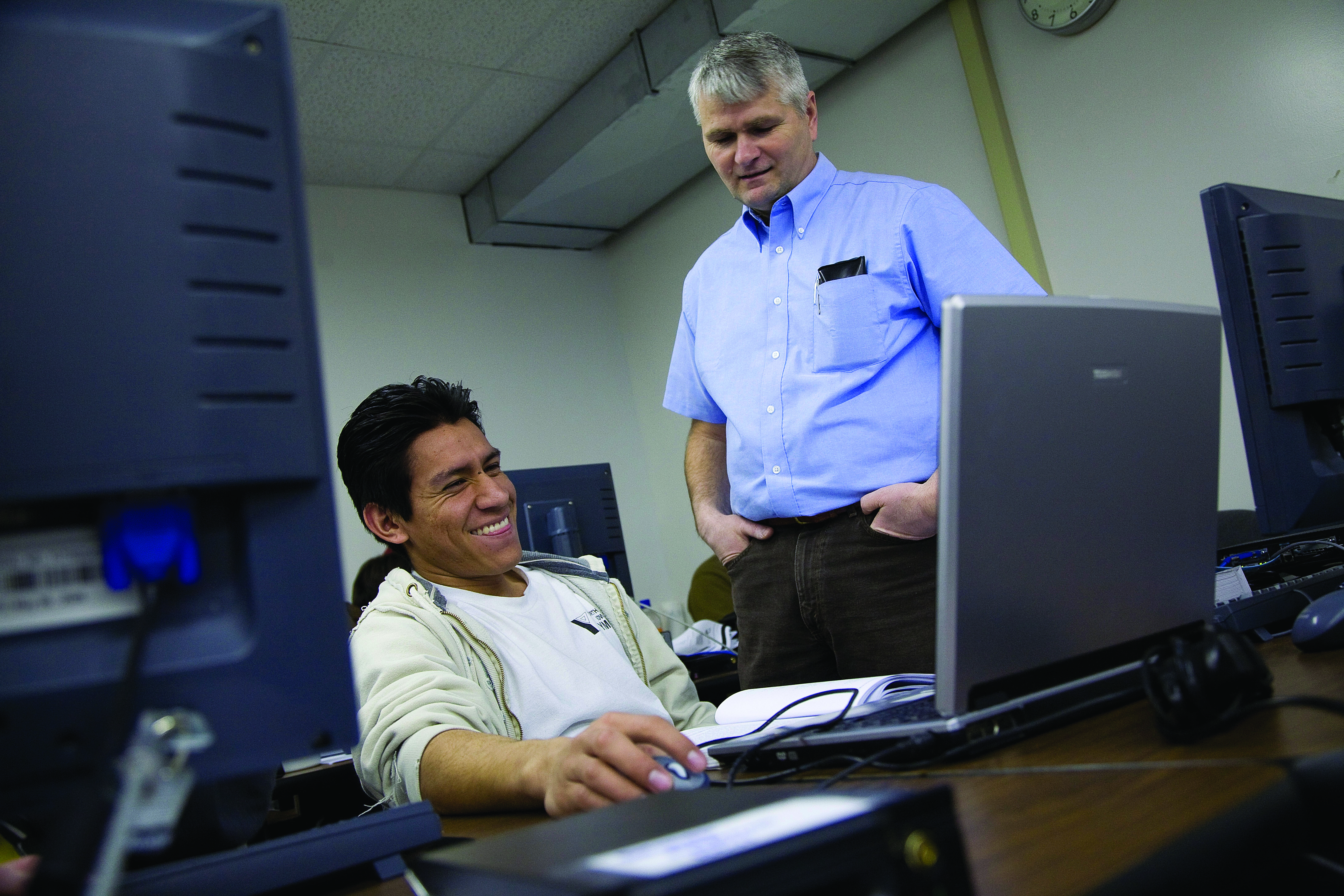Report highlights workforce opportunities for immigrants

Contact
Alex Baum
Knowledge Management Director
563.588.2700
alex@dbqfoundation.org
For immediate release
With parts of Dubuque’s economy reopening and many residents still dealing with the impacts of COVID-19, the employment landscape looks vastly different than it did just a few months ago. In Dubuque County, unemployment in April was reported at 12.7% — the highest since before 2000. Challenges are anticipated as businesses reopen and begin hiring at the same time.
In mid-March, when the nationwide shutdown was beginning in response to the COVID-19 outbreak, the Community Foundation of Greater Dubuque was partnering with the Massachusetts Institute of Technology’s Sloan School of Management to study the connections between local employers and immigrant communities. Recognizing the crisis that was remaking the economic and social landscape of our region, the research pivoted to instead address immigrant communities’ access to resources and employment during the pandemic, and identify opportunities for a more effective and inclusive recovery.
The resulting report is the culmination of a series of in-depth interviews, a needs assessment, and a survey of local employers conducted by four MIT graduate student-researchers.
The researchers found that:
- Members of immigrant communities face sizable language barriers, feel disconnected and sometimes unwelcome in Northeast Iowa, and struggle with a complex legal system. At the same time, many express hope.
- Surveyed businesses value essential skills like honesty, work ethic, and ability to work well with others more than the ability to communicate in English. Those surveyed reported uncertainty about how to hire immigrant workers and stated that help navigating legal and cultural barriers would be welcome.
- COVID-19 and the current economic downturn threatens all residents in the region and also reveals opportunities to strengthen existing economic and social systems so they can meet the needs of immigrants and other vulnerable residents.
“These findings suggest that opportunities exist to match immigrant workers with employers through targeted outreach and employer-facing services,” said Alex Baum, knowledge management director for the Community Foundation of Greater Dubuque who is leading the Foundation’s research work around immigrant communities. “The recovery from COVID-19 will be our first opportunity to help facilitate these connections.”
The Northeast Iowa region remains majority white and native-born, yet recent Census data suggests that immigrant communities represent a sizable share of the region’s population, particularly in Allamakee, Dubuque, and Clinton Counties. The Latino, indigenous Mayan Guatemalan and Marshallese communities in particular have a notable presence in the region. The share of immigrant residents is rising in Dubuque as it is across the state: Over the past decade, an estimated 40% of Iowa’s population growth has come from immigration.
In the report, the researchers recommend several strategies for the Community Foundation and its partners to create a more connected, resilient and inclusive region:
- Aggregate immigrant support services, especially during the pandemic.
- Support digital transitions for immigrant families, volunteers and service providers by encouraging the long-term goal of a universal broadband subscription.
- Use inclusive messaging and outreach to shift mindsets in Dubuque about immigrant communities.
- Create a proactive immigrant employment strategy to help build connections between local employers and immigrant communities.
This research builds on the Community Foundation’s ongoing leadership around initiatives to move low-income, unemployed and under-represented members the Dubuque community into a pipeline focused on career-ladder jobs. By increasing employment, access and training opportunities for immigrants and other marginalized communities, the Foundation and its partners strive to not only improve the livelihoods of individuals and families in Northeast Iowa, but also to increase the region’s pool of labor, helping local businesses expand and fill long-vacant positions.
In addition, Foundation-led workshops like Best Practices in Diversity, Equity and Inclusion and the Business Leader Equity Cohort are helping employers develop strategies for fostering welcoming and inclusive workplaces as well as attracting and retaining a diverse team of employees.
The MIT report will be an important point of reference for the Community Foundation and its partners in the business, civic, education and nonprofit sectors as they work together to address issues of employment, inclusivity and economic well-being.
“The Community Foundation is in a unique position to convene local leaders around regional needs and challenges and find solutions that improve the lives of our residents,” says Nancy Van Milligen, president and CEO of the Community Foundation. “As our community begins the long recovery from the COVID-19 pandemic, this new report will help guide us in that role and inform our efforts to refine existing programs and develop new approaches to our region’s workforce issues.”
The MIT study and partnership with the Community Foundation were part of a semester-long course in which the student-researchers and their peers actively worked to study and find solutions to economic, social and political conditions in communities across the country that pose barriers to opportunity for many Americans. Four students in the program focused on Dubuque, working closely with the Community Foundation to study the region’s economic landscape.
This study represents the third time the Community Foundation has partnered with MIT to research community needs. Previous studies have focused on increasing access to child care and building a workforce pipeline.
# # #
The Community Foundation of Greater Dubuque envisions a vibrant and inclusive Dubuque region where everyone can thrive. Since 2002, we have inspired people to give back to their community, and we turn this generosity into lasting change across our region, increasing access to resources and opportunities that help all people succeed.
Visit dbqfoundation.org to learn about the many ways we are building a strong, thriving Greater Dubuque for all.